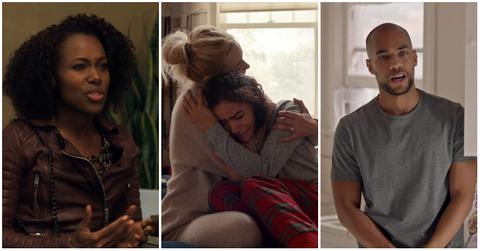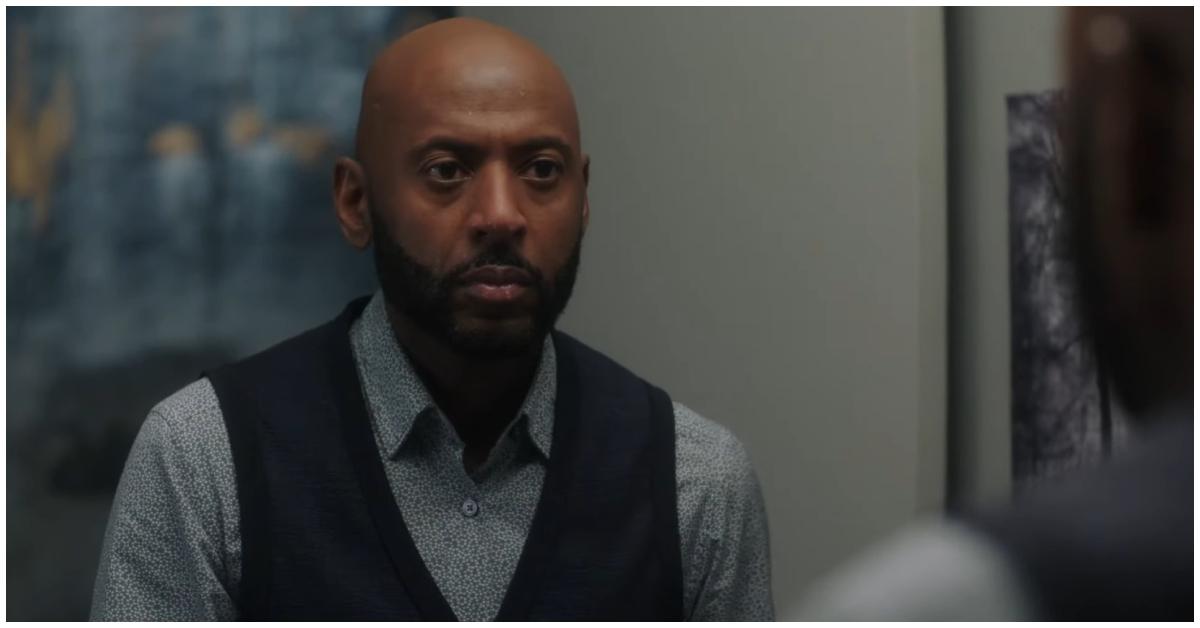The Top 5 TV Episodes That Accurately Depict Mental Health in the Black Community
Updated Sept. 7 2023, 10:55 a.m. ET
Just the Gist:
- Mental health struggles affect the Black community at alarming rates.
- Black people going through mental illness is less shown in the community.
- There are several shows that got Black mental health right.
Mental illness is one of the most prominent types of invisible illnesses. Unfortunately, unlike several physical disorders one could have in their lifetime, many have been conditioned to believe they don’t need to prioritize their mental health. The way of thinking affects minorities — particularly those within the Black community — astronomically.
Even in 2023, there’s still a stigma surrounding mental health in the Black community, making it more challenging than ever for folks to receive the proper help they need.
Thankfully, TV has always been a great tool to show characters doing the things ordinary people fear. And, like most conversations, therapy and mental health have made their way into mainstream and independent TV shows that were either created for or feature Black characters.
Here’s our list of the top 5 best TV episodes of Black people accurately depicting mental health.
‘A Million Little Things’ Season 4, Ep. 8 — “The Things We Keep Inside”
In the first episode of A Million Little Things, Jon (Ron Livingston), a prominent businessman, dies by suicide by jumping off of his office’s balcony. After opening the scene, viewers discovered Jon wasn’t the only one in his friend group suffering in silence. During the pilot, one of Jon’s best friends, Rome Howard (Romany Malco), also attempts suicide by taking several pills.
Rome spends the rest of A Million Little Things navigating his diagnosis, which turns out to be depression. After years of treating his depression with therapy and medication, Rome seemingly gets on track until Season 4. In one episode, “The Things We Keep Inside,” Rome’s wife, Regina (Christina Moses), notices something off about her husband and fears he’s having an affair.
Eventually, Rome confesses that he can’t pretend he’s OK with Regina and tells her, “My depression is back.” The scene between the couple is an emotional yet rare moment of a Black man letting the woman he loves in on how he’s feeling, making it even easier to root for one of TV’s best couples!
‘Giants’ Season 1, Ep. 6 — “Unpack These Bags”
Though it started as a web series on YouTube, Giants, a short-lived show on Issa Rae’s YouTube channel, has found a new life on BET Plus. The Emmy-winning series, starring James Bland and Vanessa Baden Kelly, touched on multiple mental health topics in its two seasons, primarily through Vanessa’s character, Journey.
Journey spends most of Giants Season 1 battling her bipolar disorder diagnosis. In the Season 1 finale of Giants, “Unpack These Bags,” Journey’s mood disorder affects everything around her, from her job to her and Malachi’s (James) apartment.
After several setbacks, Journey moves in with her sister, Candace (Alesha Renee), who argues with Journey about losing her job. Once Journey tells her she thinks Journey uses her mental illness as an “excuse,” Journey speaks for many who struggle with bipolar disorder when she eloquently explains how she isn’t using her diagnosis as an excuse or for extra attention.
‘Ginny & Georgia’ Season 2, Ep. 6 — “A Very Merry Ginny & Georgia Christmas Special”
Season 2 of Ginny & Georgia allowed fans of the Netflix hit to dive more into the lives of the namesake mother-daughter duo. In “A Very Merry Ginny & Georgia Christmas Special,” Georgia (Brianne Howey) discovers Ginny (Antonia Gentry) has been burning her skin to cope with her anxiety and self-identity as a biracial girl raised by a white mom.
When Georgia discovers what Ginny has been doing, she immediately does the wrong thing and makes Ginny’s struggle with her. However, after listening to her daughter, she hugs her tight and tells her to “give” all her pain to her mother. The touching moment is a prime example of what most children want to hear from their parents when they’re in trouble.
‘Insecure’ Season 4, Ep. 9 — “Lowkey Trying”
As hilarious as Insecure is, seeing the real issues Black 20 and 30-somethings face depicted through the iconic characters is always refreshing. One character that helped open the conversation surrounding Black men and mental health was one of Issa Dee’s (Issa Rae) boy toys: Nathan (Kendrick Sampson).
Nathan’s smooth voice and supportive nature around Issa made him a favorite among Insecure’s viewers. But after he ghosted Issa in Season 3, fans were side-eyeing Nathan until he miraculously returned at the end of the season.
In Season 4, Ep. 9, “Lowkey Trying,” Nathan finally shares with Issa where he was during their time apart. He says he had recently been diagnosed with bipolar disorder and needed space to navigate the diagnosis.
As Issa listens to her love interest, she doesn't judge him or ask any stereotypical insulting questions those with bipolar disorder receive. Instead, she asks how he feels about the diagnosis and is a listening ear during the entire scene.
‘She’s Gotta Have It’ Season 1, Ep. 3 — "#LBD (Little Black Dress)"
Post Traumatic Stress Disorder (PTSD) affects Black women at alarming rates. According to a June 2021 report from Northwestern University, an estimated eight out of 10 Black women reported to have gone through some form of trauma in their lifetime. However, due to society’s pressures on Black women to be “strong” and “fearless,” many prefer to hide their pain from everyone around them.
Netflix’s She’s Gotta Have It depicted this in Season 1 with its lead character, Nola Darling (DeWanda Wise). In addition to the show touching on Nola’s steamy love life of having four romantic partners, her mental health became a topic when she was almost assaulted by a man while walking home.
During the season, Nola tries to ignore the traumatic experience by utilizing other resources like a tarot card reader. However, in Season 1, Episode 3, "#LBD (Little Black Dress)," Nola begins talking out her issues with a therapist, played by Heather Headley.
Seeing Nola with another Black woman as her therapist was a powerful scene to watch for other Black women who have struggled to acknowledge their trauma.
If you or someone you know needs help, use SAMHSA Behavioral Health Treatment Services Locator to find support for mental health and substance use disorders in your area or call 1-800-662-4357 for 24-hour assistance.

